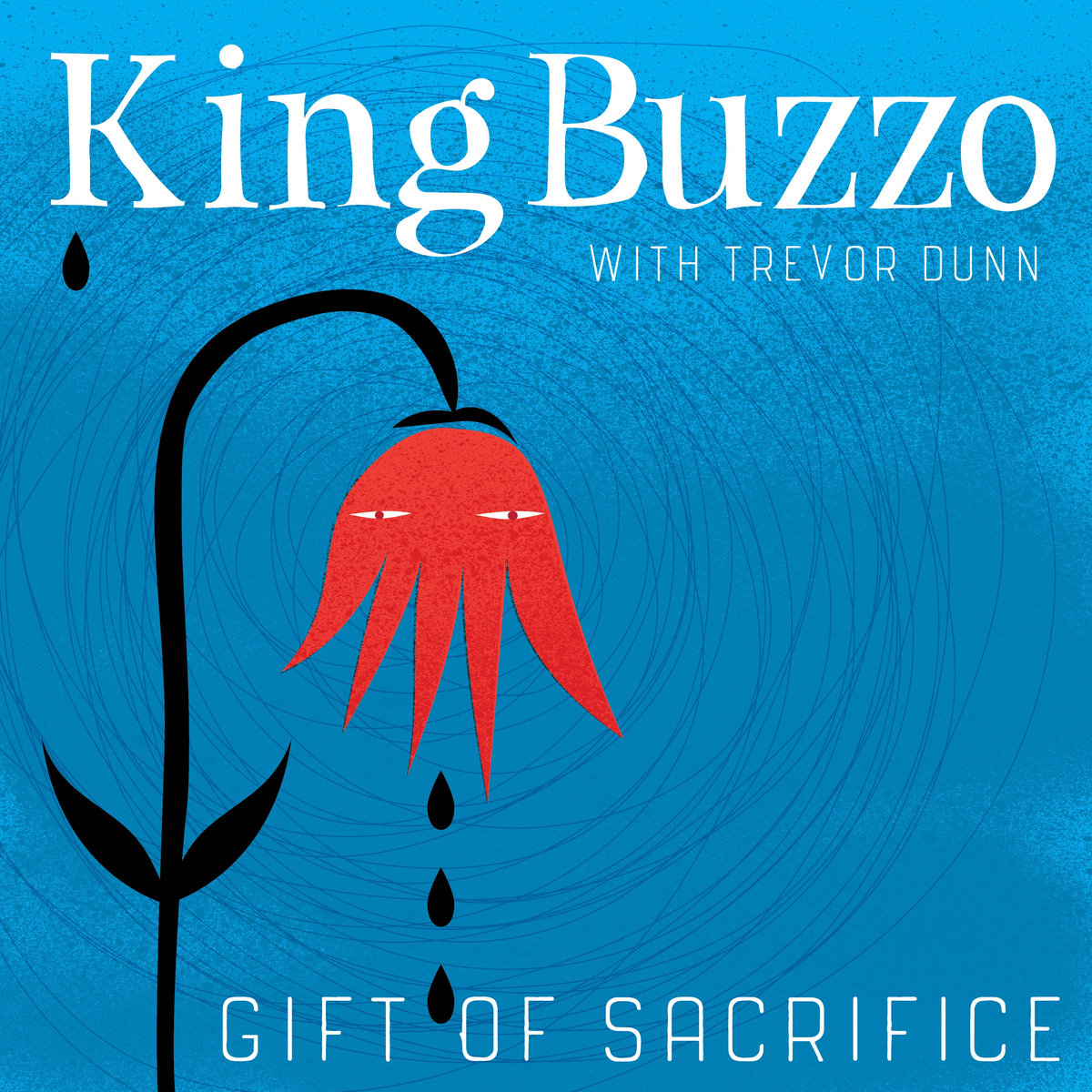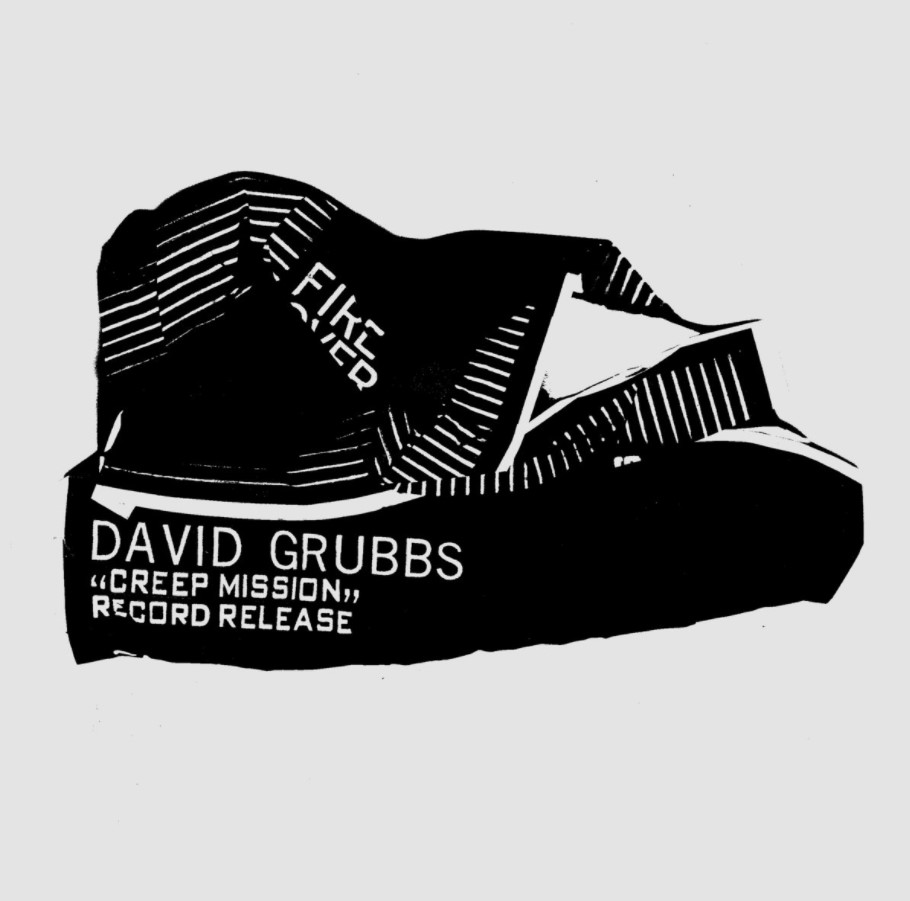Ipecac Recordings advanced two singles off King Buzzo’s much-anticipated second solo LP, Gift of Sacrifice: “I’m Glad I Could Help Out” and “Science in Modern America”. They’re good, they’re good. But why the label didn’t sneak a peak, though, at “Housing, Luxury, Energy”, arguably the record’s best track, is beyond me.
The six-minute-long song, the introduction to the collection after a short sound experiment, positively gnaws at heartstrings and aches from angles that Buzz Osbourne has not (or maybe has very rarely) displayed previously in his substantial discography. The acoustic guitar is resolute, progressing ever forward, but featured artist Trevor Dunn saws on and sows his double bass to create mournful, even almost regret-laced swells of strings. As the piece unfolds, Osborne’s acoustic picks up venom, and he starts spitting out his lines, agitated, as Dunn offers an array of low-end colors. Sonically, it’s pretty astounding stuff, bearing a kind of finish and attention to details that you wouldn’t expect from the successor to something as live-raw and immediate as King Buzzo’s This Machine Kills Artists, from 2015. It might be, if I can get blasphemous for a moment, one of the best songs Osborne has put to tape in many years.
Much could be said of the whole record. This Machine Kills Artists was enthralling for its raw-nerve audacity and action-snapshots: little two-minute vignettes like “Dark Brown Teeth” where Osborne’s signature strumming style gutted the acoustic’s innards and laid bare the sentiment beneath. The new record features half the number of songs as its predecessor, and many of them now break four, five, and six minutes. And that’s not the only difference. The aforementioned “Science in America” traffics in a bizarre kind of nuance for Osborne, decrying American ignorance as it pans between vocal-recording patterns or accents the sliding between acoustic chords with the low-frequency hum of bass. Two brief solos – first, acoustic guitar and then, even shorter, the pulse of Dunn’s upright – are worth calling out for their freshness and ingenuity, even if, in terms of run time, they seem slight or off-handed.
At times, as on many of the finer points of This Machine Kills Artists, Osborne seems to be relishing the freedom that comes from working outside of the brain-melting distortion and epic expectations of Melvins, his longtime band with Dale Crover and a rotation of bassists. On “Mock She”, he’s practically giddy, singing multi-layered lines like “You make me feel at ease / You even make me glow” in the true, spotlight-stealing tradition of a ’70s rock icon. Much the same could be said for the Jimmy Page- and Robert Plant-isms of the optimistic “Bird Animal”. The record closes one track after “Mock She”, with the scattered noise refrains and avant framing of “Acoustic Junkie”, another “collage” of textures, if you will.
The record is littered with gems. “Delayed Clarity”, which, at 6:35, is the record’s longest track, is an opus in its own right. While Dunn’s bass variations – bowed, plucked, hit – keep it fresh, you can’t understate the delivery of Osborne, who teeters between the campy and the heartfelt. The song isn’t dramatically different from offerings on the 2015 solo “debut”. (I call BS on that one; all Melvins fans know the KISS-style EP on Boner Records remains Osborne’s solo debut.) Osborne can get his pick underneath the low strings when strumming vigorously, offering the rattled-stringed sound at which Richard Buckner sometimes excels. But there’s a sense of scope to Gift of Sacrifice that’s new to Osborne’s solo oeuvre.
Osborne and Dunn have worked together before, most notably in the Patton-fronted Naked City homage Description Fantômas. And Dunn offered Melvins Lite a stunning kind of rubberiness and flexibility when he appeared as part of the trio. But what the duo have cooked up here is entirely different than what has come before it. Gift of Sacrifice is an engaging, even emotional, collection of songs. Osborne isn’t wearing masks; he’s just finding inventive ways to stretch his voice and sound. For longtime Melvins fans, this is another gem. And who knows? It might find everyone’s favorite A-bomb-haired front-man a few new disciples. – Justin Vellucci, PopMatters, Aug. 11, 2020
-30-




